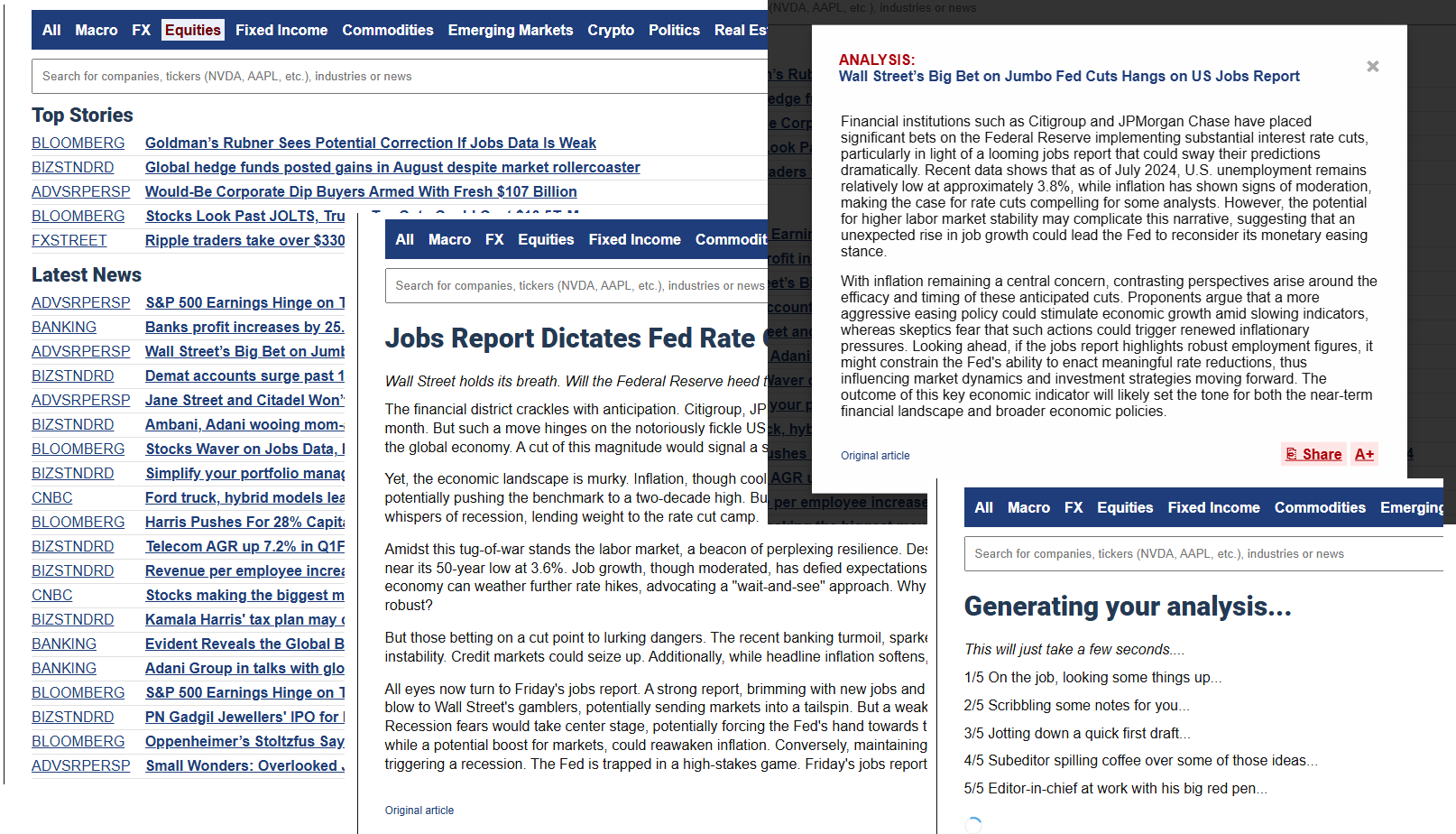Lulu IPO Sparks Dynamic Financial Shifts Worldwide
Lulu Retail Holdings Plc's recent initial public offering not only underscores a pivotal moment for the rapidly evolving economic landscape of the Middle East, but also reflects a broader global trend in financial markets. Priced at $1.43 billion, the IPO was completely subscribed within just an hour, illustrating a remarkable investor appetite for resilient retail enterprises. This swift success exemplifies the robust economic prospects within the Central Gulf region but also carries significant implications for transnational market dynamics. The rapid sell-out of shares provides a testament to the surging liquidity and compelling investment demand within Abu Dhabi, presenting an optimistic view for sustained economic growth across the region's financial environment.
This surge in Abu Dhabi's financial magnetism takes place against a backdrop of fluctuating energy markets, precipitated by ongoing geopolitical maneuvering. Recently, Israel's tactful military engagement with Iran, which notably avoided interference with strategic oil infrastructures, resulted in a temporary easing of fears pertaining to oil supply disruptions. Consequently, oil prices saw a decline of over 4%. This situation highlights the intricate linkages between regional political tensions and global commodity valuations. Moreover, as the world shifts towards sustainable energy paradigms, these fluctuations mark a transitional stage for traditional energy sectors. The implications are far-reaching, especially for nations whose revenues are significantly tied to hydrocarbon industries.
Amid these developments, Japanese companies like Nippon Paint are showcasing strategic agility by investing in international markets, a trend underscored by their recent $2.3 billion acquisition. This move aligns with a broader strategy among Japanese firms to bolster their global presence and economic resilience in light of domestic political challenges and evolving consumer trends. Prime Minister Shigeru Ishiba, after a recent electoral setback, faces mounting pressure to reinvigorate governance, a situation that reverberates across interconnected Asian economies.
Meanwhile, European markets are gradually regaining their footing, reflecting a cautious optimism as investors evaluate Middle Eastern developments in conjunction with regional economic indicators. Prominent figures like Philips face significant demand challenges in China, exemplifying the complexities multinational corporations encounter within a hyper-globalized economic framework. The decreased sales projections underscore the considerable impact that regional economic downturns can exert on diverse multinational entities. Yet, temporary upturns in European markets counterbalance such uncertainties, depicting a landscape of cautious optimism interwoven with geopolitical and economic uncertainty.
In Asia, particularly the tech-savvy sectors, investment enthusiasm persists robustly. Companies like Metaplanet are making pronounced shifts towards digital currencies, with the company notably increasing its holdings to over 1,000 Bitcoins. This proactive stance signals a transformative embrace of digital assets as viable investment vehicles, redefining conventional market narratives and sparking a broader realignment in investment strategies globally.
Geopolitical dynamics continue to play a crucial role, evidenced by the European Union's unveiling of a €35 billion loan package to Ukraine. This macro-financial assistance is instrumental amid ongoing regional tensions, not only aiding Ukraine in fiscal management but also signifying the EU's strategic effort to stabilize its geopolitical sphere while countering Russian expansionist activities. These funds, sourced from frozen Russian central bank assets, exemplify the strategic application of financial sanctions as tools of diplomacy, further stressing their importance in supporting allied economies.
In Australia, equity markets have recently experienced modest gains, primarily driven by the iron ore sector's strength, partially offsetting losses in other financial areas. This scenario accentuates the crucial role that commodities play in the Australian economy's structure, emphasizing the nuanced balancing act necessary to maintain fiscal stability amid external pressures. Additionally, ongoing legal challenges related to mining activities near protected areas highlight the complex interplay between economic progress and environmental responsibility.
In contrast, the Middle East is gaining financial prominence through initiatives such as Abu Dhabi's Mubadala contemplating its first sukuk issuance. Such substantial financial measures underscore the region's aspirations to diversify its economic base and attract a wide range of investment portfolios amidst shifting global energy demands.
Vietnam and India are showcasing their emerging prowess as economic innovators on the global stage. Vietnam's efforts to modernize its stock market framework and India's success in securing Swiss investments through a significant $100 billion trade agreement illustrate strategic maneuvers propelling these nations into influential global positions. This transformation reflects a shifting global economic balance increasingly influenced by Asia’s emerging economic powerhouses.
As global institutions such as the International Monetary Fund and the World Bank navigate the intricate landscape shaped by changing fiscal policies, consumer sentiment, and international relations, they do so under the growing influence of emerging technological advancements and economic realignments among major powers. Lulu's IPO success, juxtaposed with the broader market complexities, underscores the elaborate configurational dynamics of contemporary financial ecosystems and the strategic acumen required to surmount unprecedented challenges and seize potential opportunities.
AI-Powered trading insights: join our email list
Real-Time Market Analysis
Get instant insights on market trends, news impact, and trading opportunities.

